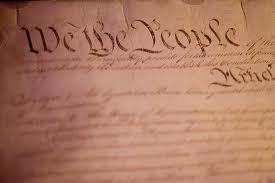
As the title suggests, Public Law deals with the way in which the legal system directly intersects with the world of politics and public policy. While the subject of public law centers on constitutional law, it also includes any area of law that has to do with the way in which local, state and federal governments affect the lives of their citizens. Lawyers have always played a central role in the public life of Wisconsin and the United States and Public Law classes are especially appealing to students who are considering careers in politics, government, or public service.
Marquette’s curriculum offers students a variety of in-class and experiential learning opportunities in Public Law.
There are a number of courses that examine the intersection of law and history, including American Legal History, American Constitutional History, and Crime and Punishment in American History, that fall into the Public Law stream. The Public Law course stream also offers several seminars including, The Supreme Court, Enforcement of Constitutional Rights, Advanced Constitutional Law, Advanced Issues in the First Amendment, and Wisconsin Legal History, as well as a few selected topics seminars such as Perspectives on the Right to Vote and Race and the Law.
The in-class curriculum is complemented by the supervised fieldwork programs at the Wisconsin Supreme Court, the US Court of Appeals for the 7th Circuit, the US District for the Eastern District of Wisconsin and the US Magistrates Court for the Eastern District of Wisconsin and the Law School’s public policy initiative that is highlighted by the On the Issues series and the Marquette Law Poll.
Faculty
Full-Time Faculty
Professor Edward Fallone
Professor Scott Idleman
Dean Joseph D. Kearney
Professor Michael O'Hear
Professor Chad Oldfather
Professor Peter K. Rofes
Adjunct Faculty
Professor Michael Morse
Professor Joseph Ranney
Professor Thomas Shriner
Curriculum and Courses
The classroom component begins with the first year required course, Constitutional Law I and includes a number of upper level courses like Constitutional Law II: Speech and Equality, Local Government Law, Federal Indian Law, Federal Courts, Land Use Regulation, Constitutional Criminal Procedure, Education Law, Law and Religion, Law of Privacy, Federal Courts, Terrorism and Federal Law, The Wisconsin Supreme Court and the State Constitution, and Contemporary Legal Issues: The First Amendment.
Course descriptions can be found in the online Law School Bulletin.
Please note that not every course is taught each year.
Student Organizations and Activities
Registered Student Organizations contribute to the vibrant student community at Marquette University Law School. Scroll through our list of organizations to find the one that suits you best and if you are a current student, you can click on the links to get contact information.

